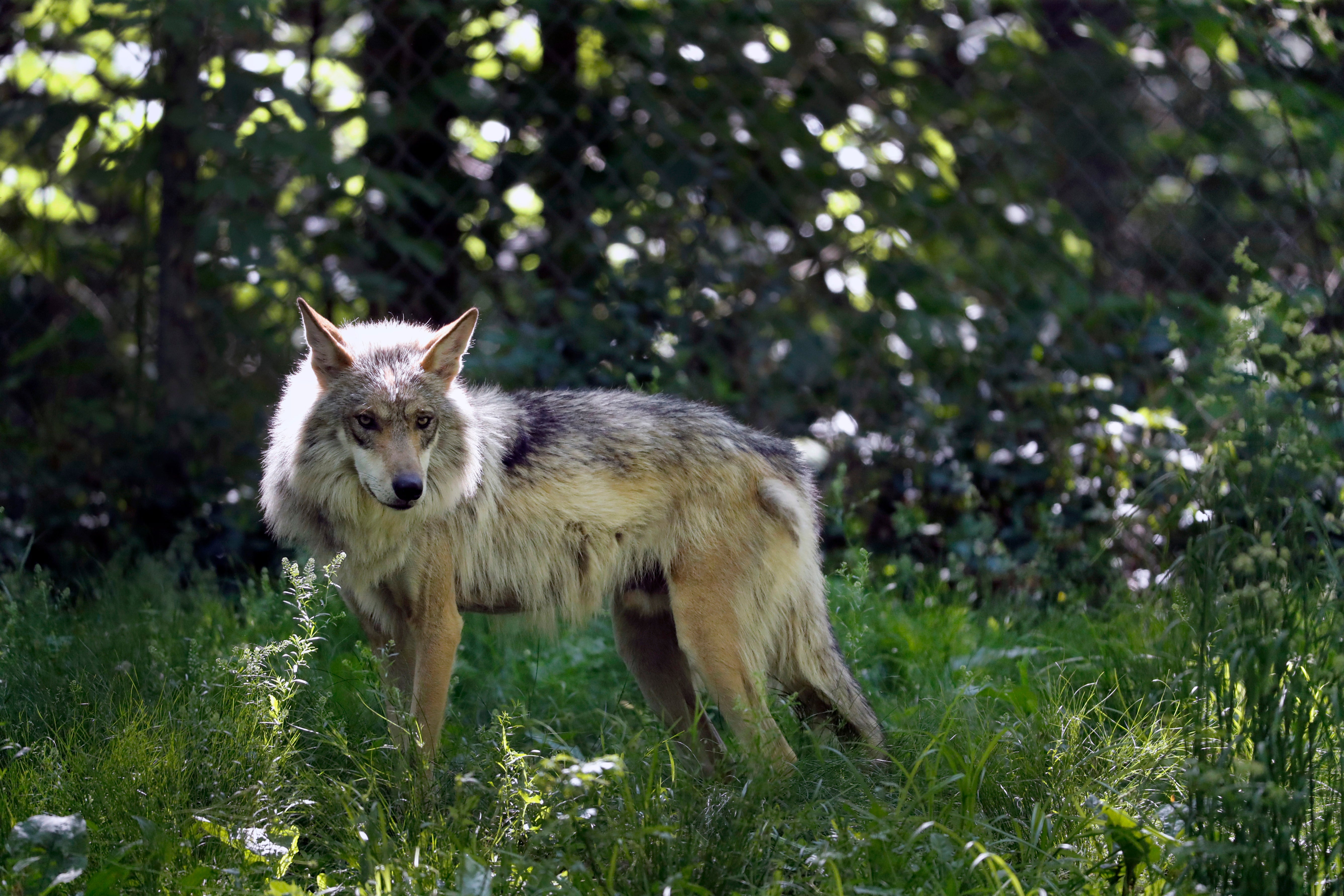Rule for managing endangered Mexican wolves spurs lawsuit
U.S. wildlife managers are being sued over their new management rule for the endangered Mexican gray wolf, with environmentalists saying it doesn't go far enough to ensure the species' survival

Your support helps us to tell the story
From reproductive rights to climate change to Big Tech, The Independent is on the ground when the story is developing. Whether it's investigating the financials of Elon Musk's pro-Trump PAC or producing our latest documentary, 'The A Word', which shines a light on the American women fighting for reproductive rights, we know how important it is to parse out the facts from the messaging.
At such a critical moment in US history, we need reporters on the ground. Your donation allows us to keep sending journalists to speak to both sides of the story.
The Independent is trusted by Americans across the entire political spectrum. And unlike many other quality news outlets, we choose not to lock Americans out of our reporting and analysis with paywalls. We believe quality journalism should be available to everyone, paid for by those who can afford it.
Your support makes all the difference.U.S. wildlife managers are being sued over their new management rule for the endangered Mexican gray wolf, with a coalition of environmentalists saying the recently adopted court-ordered changes fail to address genetic concerns and limit the predators from roaming bigger swaths of the American Southwest.
The rule, released before a July 1 deadline, was the result of another years-long legal battle over the predators. Among other things, it outlines when and how wolves can be removed from the wild or released from captivity.
In a complaint filed in U.S. district court in Arizona, the Center for Biological Diversity and Defenders of Wildlife note that the U.S. Fish and Wildlife Service set a population target of 320 wolves in a single area that spans parts of Arizona and New Mexico. They also say the rule prohibits wolves from moving into promising but yet unoccupied territory in the Grand Canyon and southern Rockies regions.
The groups say scientists have identified that establishing additional Mexican wolf populations as essential to eventual recovery.
They also argued that while the rule calls for the release of enough captive wolves to improve the wild population’s genetic diversity, federal officials will consider the population’s genetic problems solved if the released wolves survive to a certain age, regardless of whether they ever breed.
“The government’s new management program threatens failure for the entire Mexican gray wolf recovery effort,” said Timothy Preso, managing attorney for Earthjustice, which is representing the environmental groups in the case.
Regional officials with the U.S. Fish and Wildlife Service did not respond to messages seeking comment on the latest lawsuit.
When the rule was released at the end of June, Amy Lueders, the agency's Southwest regional director, said the revisions would ensure that wildlife managers are on “the best path toward recovery” while continuing to provide tools for managing conflicts on the landscape. She was referring to the continued killing of livestock by wolves.
New Mexico ranchers fear that trading a population cap for a “management target” will only lead to more confrontations.
Meanwhile, other environmental groups have notified the agency that they also plan to sue over the rule.
The rarest subspecies of the gray wolf in North America, the Mexican wolf has seen its population increase over the last six years. A survey done earlier this year showed at least 196 Mexican gray wolves in southwestern New Mexico and southeastern Arizona.
On Wednesday, the Fish and Wildlife Service announced that it recently signed a letter of intent with wildlife agencies in New Mexico, Arizona and Mexico to continue working together to recover the wolf along the international border.
The U.S. has been releasing wolves into the wild since 1998. Mexico marked its tenth year of doing so in 2021, when it reported having at least 40 of the animals in the wild.
Environmentalists in the lawsuit accused the Fish and Wildlife Service of elevating “a negotiated political solution” over what they consider the best available scientific evidence for establishing a framework to recover the species. They are asking the court to force the agency to reconsider the rule.
According to the lawsuit, the wolf population remains isolated and genetically depressed. Environmentalists say that on average, any two wolves are about as closely related to each other as full siblings and this has consequences for the long-term viability of the population as a lack of genetic diversity can result in less reproductive success and the weaken the ability of the wolves to fight off disease.
The lawsuit also states that the wild population is propped up by a supplemental feeding program, which uses strategically placed food caches to keep wolves from killing livestock.